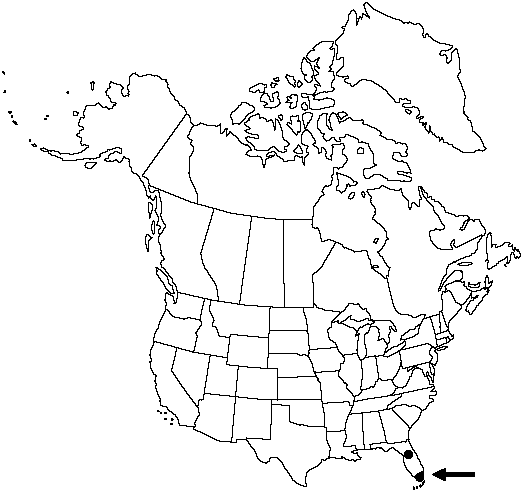Campyloneurum angustifolium
5: 257. 1852.
Common names: Narrow strap fern
Basionym: Polypodium angustifolium Swartz Prodr., 130. 1788
Treatment appears in FNA Volume 2.
Revision as of 20:25, 5 November 2020 by imported>Volume Importer
Stems short-creeping, 3–7 mm diam. Leaves usually many, arching to pendent. Petiole essentially absent to ca. 3–5(–8) cm. Blade yellowish to dark green, elongate-linear, ± falcate, 30–60 × 0.5–1.5 cm, papery; base and apex long-attenuate; margins often slightly revolute. Veins obscure, primary veins inconspicuous, slightly to strongly curved, areoles in 1–4 series between costa and margin, with free included veinlets. Sori in 1–2 rows on each side of costa.
Habitat: Epiphytic on oaks, pond apples, magnolias, and other rough-barked trees in hammocks and swamps in the everglade keys, substrate subacid
Elevation: 0 m
Distribution

Fla., Mexico, West Indies, Central America, South America.
Discussion
In the flora Campyloneurum angustifolium occurs only in Collier County, Florida. It was reported earlier from Dade and Seminole counties.
Selected References
None.
Lower Taxa
None.